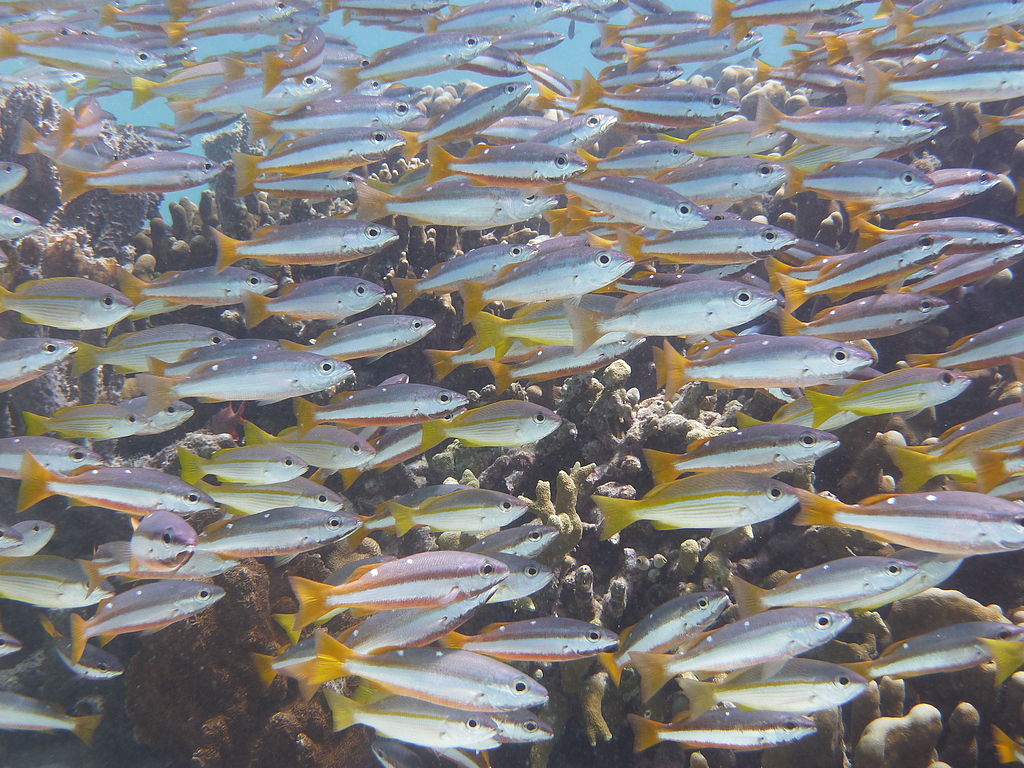We're open daily! View holiday hours
Science News
Conservation and Social Conflicts
July 28, 2014
by Molly Michelson

Wildlife conservation may not help the bloodshed in Gaza, but according to a recent article by UC Berkeley’s Justin Brashares and colleagues, it may help prevent violent conflicts, crime, and slavery in many other parts of the world.
The paper, published last week in Science, presents the obvious facts:
The harvest of wild animals from land and sea provides more than $400 billion annually, supports the livelihoods of 15% of the global population, and is the main source of animal protein for more than a billion of Earth's poorest inhabitants.
But what happens when that marine life and those wild animals are no longer there?
If we just follow the fish, the researchers describe some startling social issues when seafood resources become scarce: in Kenya, women will trade sex for fish; in Ghana, fewer children attend school and more children work in poor conditions (for more specifics, read this article in the New Yorker); in Thailand, Burmese, Cambodian, and Thai workers are subjected to 18- to 20-hour days at sea for years without pay to travel farther and farther to find fish; and in Somalia, piracy was born over the fight for fish.
“Surprisingly few people recognize that competition for fish stocks led to the birth of Somali piracy,” says Brashares. “For Somali fishermen, and for hundreds of millions of others, fish and wildlife were their only source of livelihood, so when that was threatened by international fishing fleets, drastic measures were taken.”
On land, the authors compare wildlife poaching to the drug trade, noting that huge profits from trafficking luxury wildlife goods, such as elephant tusks and rhino horns, have attracted guerrilla groups and crime syndicates worldwide. They point to the Lord’s Resistance Army, al-Shabab, and Boko Haram as groups known to use wildlife poaching to fund terrorist attacks.
The team writes that solutions to these issues lie not only in organized global efforts, but in giving the power of wildlife protection to locals. The authors provide examples of local governments heading off social tension, through efforts such as granting exclusive rights to hunting and fishing grounds to locals in Fiji and controlling management zones in Namibia to reduce poaching and improve the livelihood of local populations.
And the Berkeley researchers are not alone in recommending this solution. A separate study, also published last week, by the World Resources Institute entrusts local populations to help conserve land and wildlife and combat climate change. (New Scientist has more information about the report here.)
“This prescribed re-visioning of why we should conserve wildlife helps make clearer what the stakes are in this game,” says Douglas McCauley, of UC Santa Barbara, and a co-author of the Science paper. “Losses of wildlife essentially pull the rug out from underneath societies that depend on these resources. We are not just losing species. We are losing children, breaking apart communities and fostering crime. This makes wildlife conservation a more important job than it ever has been.”
Image: /Wikipedia